Clinics in rural Alaska brace for impact as Senate GOP mulls how much to slash Medicaid
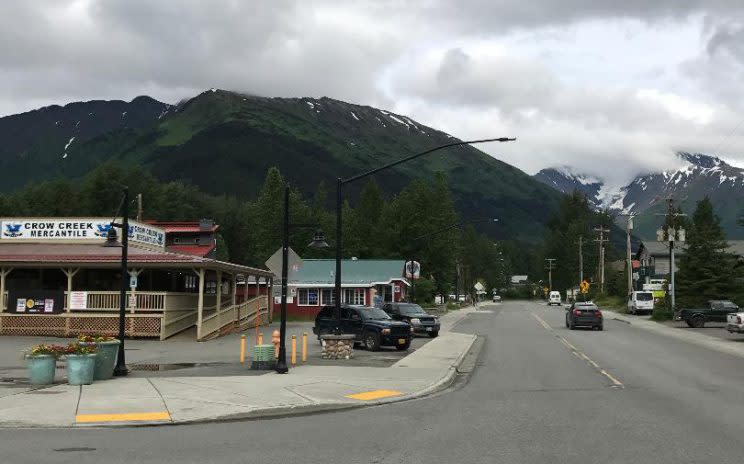
GIRDWOOD, Alaska — The Girdwood Health Clinic’s biggest challenges usually include treating skiers from the town’s Alyeska Resort, as well as caring for 2,000 year-round residents. In a town where many prominent Alaskans maintain impressive chalets, it is easy to overlook the modest facility, consisting of a small building and a trailer located just off the main drag.
But if the state’s Medicaid expansion is rolled back the clinic’s executive director Tawny Buck and her staff may struggle to keep the clinic open.
“Our patients will lose their coverage. That doesn’t take away our responsibility to provide coverage — we’re required to,” she told Yahoo News on Wednesday. “The formula is scary for how we keep our doors open.”
And if the facility were to close or drastically reduce its services, the impact would be severe. Buck says that, as a federally funded clinic, the facility is committed to helping patients from throughout the region, regardless of ability to pay. But if more people can’t pay, it reduces the already tight resources the clinic has to work with.
Senate Republicans are trying to pass a bill that reverses the state Medicaid expansion in the 2010 Affordable Care Act, also known as Obamacare, among other changes. They can only afford to lose GOP votes and get the legislation past united Democratic opposition — a tricky act, as both conservatives and relative moderates like Sen. Lisa Murkowski, R-Alaska, are opposed to the current version of the bill. House Republicans already narrowly passed similar legislation.
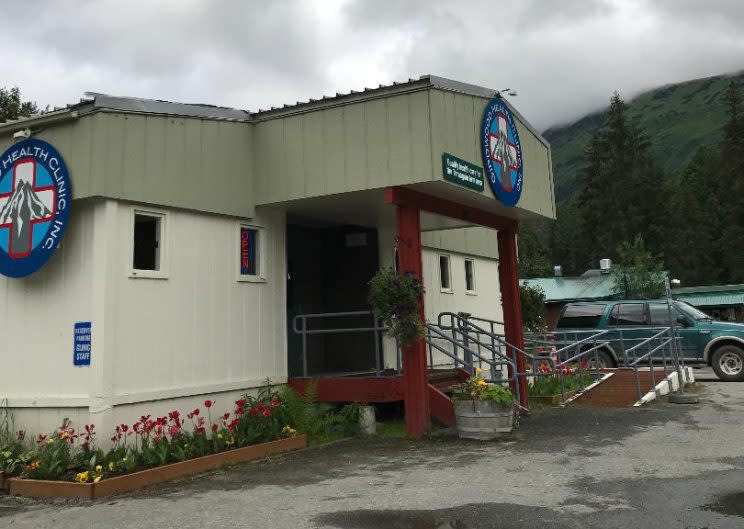
That means communities like Girdwood could play an outsize role in whether Senate Republicans are successful in their effort to substantially undermine Obamacare, affecting millions of people.
Locals say they expect to see Murkowski, who has a house in town, during the Fourth of July recess, and they’re ready to give her their thoughts on the health care reform.
A note from Murkowski hangs next to Buck’s desk and it was Murkowski’s late predecessor, Sen. Ted Stevens, who helped secure the funding to get the facility off the ground in 2004. Buck said she felt Murkowski would reach the right conclusion eventually.
“It’s a really cool model of health care delivery in Alaska,” she said. “To be able to have places like this little clinic in a town like this. It would be a bummer for that to go away.”
Girdwood is a 45-minute drive from Anchorage, meaning that residents could elect to drive to the state’s largest city if the clinic paired back its services. But Buck notes that this is not always easy: Avalanches during winter months periodically block off chunks of the Seward Highway, which connects the Kenai Peninsula with Anchorage. Passage can be blocked for hours, or even several days.
Alaska is unique, in that half of its population resides in a single city, the Anchorage metropolitan area. But the other 50 percent comprise the rest of the state, and many of those communities are not connected to the more populated areas by road. The state is twice as large as Texas, the next-largest state and one that also has 37 times more residents. (Both states have the same number of U.S. senators, however.)
Buck and her colleague Craig Ambrosiani, executive director of the Seward Community Health Clinic, a town two hours south of Girdwood, both note that they are lucky to be on a roadway at all. In the summer, cruise ships dock in Seward’s port and tourists flood the tiny downtown area. But the rest of the area is more industrial, with seasonal fishing being a top industry.
Ambrosiani says that, with fewer resources, he would not be able to offer his patients the preventative care they need.
“We would have to shrink our service and do what’s essential here and become just a Band-Aid station and ship everyone to Anchorage,” Ambrosiani said. “And then we would burden their services.”
Even though Ambrosiani said he would remain committed to being proactive on major health issues, weakened resources could be a major issue if the state’s growing opioid crisis were to hit Seward full force.
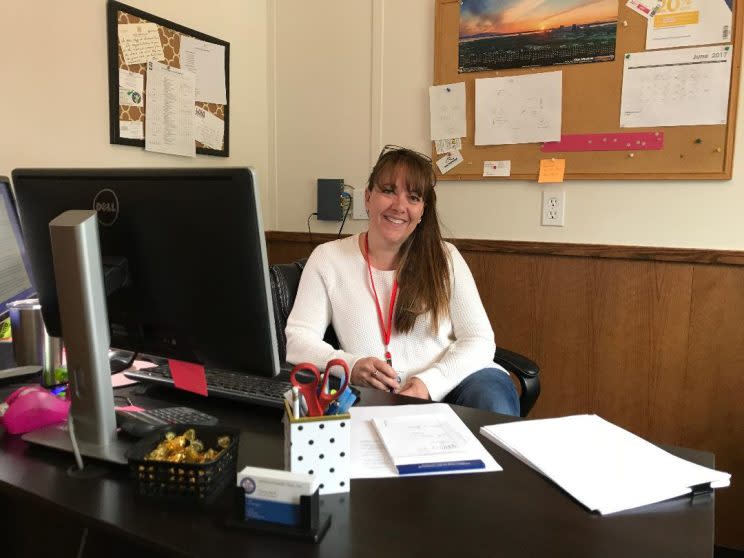
“It could really spread,” Ambrosiani said.
More rural areas in the state could be in for an even harsher fate if the Senate elects to roll back the Medicaid expansion and impose caps on the amount of money states can receive through the program.
Neither Murkowski nor Sen. Dan Sullivan, R-Alaska, responded to Yahoo News’ request for comment on how the potential impact on rural clinics was impacting their support of the bill. Both senators have said they would review the legislation and would not take action that would harm Alaskans.
“I don’t have enough data in terms of the impact to my state to be able to vote in the affirmative,” Murkowski said last week.
Much of the debate around the Senate Republicans’ bill is focused on how much to subsidize insurance on exchanges for lower-income people, whether to keep Obamacare’s required benefits for insurance plans, and how much to cut Medicaid — especially in states that expanded the program.
In Alaska, where Gov. Bill Walker unilaterally pursued expansion in 2015, over 33,000 people gained coverage, and many of them are in rural communities. Often, 50 percent or more of patients using those facilities are on Medicaid. In addition, the smallest hospitals, with as few as five or 10 beds, often are bankrolled in part by nursing homes they are co-located with. Those facilities also rely primarily on Medicaid, according to Becky Hultberg, president of the Alaska State Hospital and Nursing Home Association.
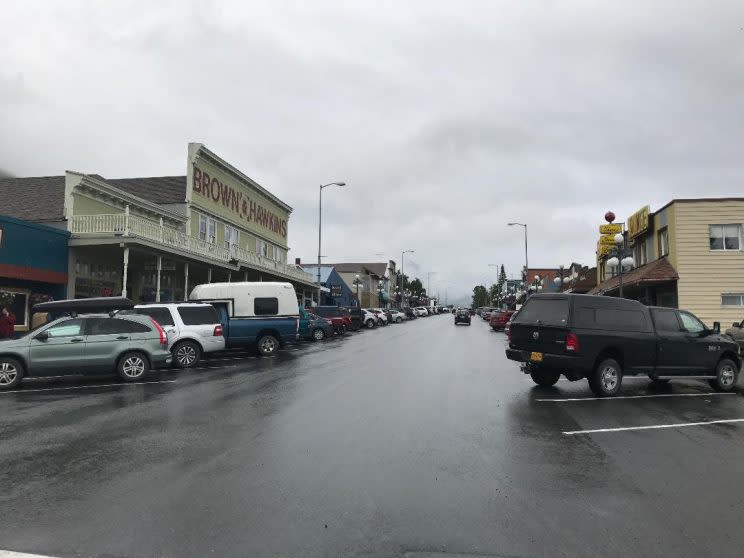
Unable to get reimbursed for those visits, smaller clinics will have a hard time staying open, Hultberg said.
“[These cuts] will result in a loss of health care infrastructure in the state,” Hultberg said. “It could result in the loss of nursing homes. It could result in the loss of [smaller] hospitals. We feel very confident making those statements because of the dramatic impacts of this bill.”
Sarah Hargrave works for the state as a public health nurse in southeast Alaska, including islands and towns accessible only by road or air. Without a health facility in town, she said her work to coordinate immunizations or screenings for common illnesses in schools will be made that much harder.
“That’s where it’s difficult: for our staff to lead someone to care where there’s nowhere to lead them to,” Hargrave said.
Hultberg said closing hospitals would have other economic effects.
“What happens if that small hospital closes in that community?” Hultberg said. “They are often the largest employer in that community and are why people chose to retire there. Or why people with families chose to move there. And once that hospital is gone, it’s not coming back.”
Buck adds that closing facilities can take a psychological toll on the fabric of a community.
“Alaskans are used to having services in their hometowns,” she said. “They want a health clinic for a community of 1,500 people. … I worry about the people in smaller communities because they don’t want to go to the bigger communities, they don’t like the impersonal nature of seeing providers they don’t know.”
Those communities can be as isolated as Barrow, the northernmost town in the state, or Bethel, a remote area on its west coast. These towns maintain clinics despite the fact that the only way to access them is via a flight or a ferry. Both of those options are often waylaid by delays in winter.
This means that, in the event of a serious injury, patients will often have to be carried by helicopter to Anchorage. These costs can often run into the six digits depending on distance and are part of the reason health care costs are so high in many parts of the state.
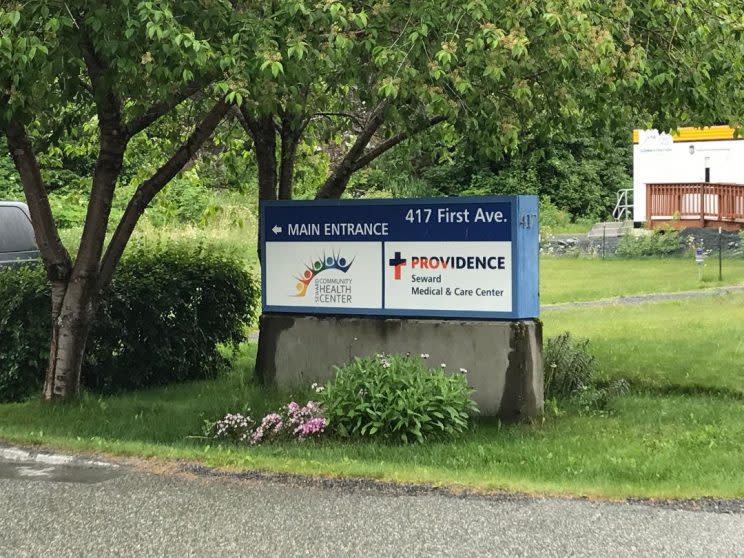
Ted Galbraith, director of clinical services for LifeMed Alaska, a medevac company based in Anchorage, said his company is fortunate to be owned by two nonprofit groups. But he also worried that the company’s ability to operate statewide could be affected if more patients are unable to pay.
This would be problematic, Galbraith said, as most smaller, remote hospitals cannot handle certain serious injuries.
“They do the best they can, but if patients are really injured, those people have to be transported, and these people are 800 miles from the nearest hospital,” Galbraith said. “People aren’t accustomed to … issues on that scale. That’s really eye-opening.”
But Hargrave, the public health nurse, noted that the effect would be felt in areas far less remote, including the state capital of Juneau, which is difficult to access by road. Given that many people in the city receive care from a tribal health facility or via Medicaid, cuts would hamper the middle class who cannot go elsewhere for care.
“If we lose Medicaid, there’s a large group of working poor who go back without care,” she said.
In Girdwood, Buck’s worries that if Medicaid funding were rolled back, uninsured patients would only use her facility when they are at their sickest. This would put further strain on her resources, she said.
“If we lose the ability to provide that sort of health education stuff to people, … all of that goodwill stuff into the community that we do, then you’re just leaving people to only come in for health care when they’re in a crisis,” Buck said. “That would be heartbreaking for little communities like ours and a little clinic like ours.”
_____
Read more from Yahoo News:
‘Morning Joe’ hosts accuse White House of blackmail over National Enquirer story
Rand Paul aide says Trump ‘fully’ behind senator’s Obamacare repeal plan
Bill to create panel that could remove Trump from office quietly picks up Democratic support
Photos: Demonstrations over reinstatement of President Trump’s travel ban

